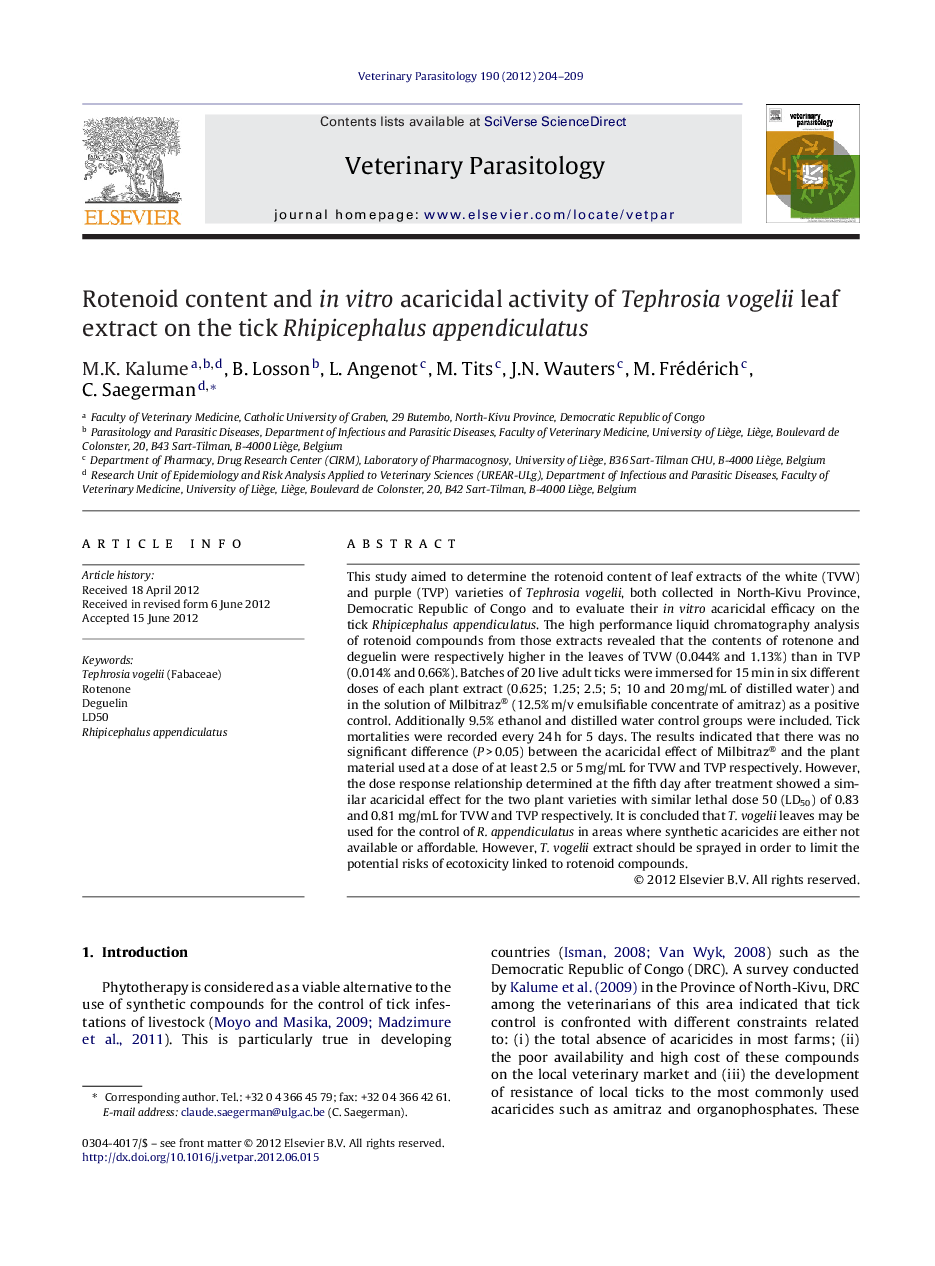| Article ID | Journal | Published Year | Pages | File Type |
|---|---|---|---|---|
| 5804691 | Veterinary Parasitology | 2012 | 6 Pages |
This study aimed to determine the rotenoid content of leaf extracts of the white (TVW) and purple (TVP) varieties of Tephrosia vogelii, both collected in North-Kivu Province, Democratic Republic of Congo and to evaluate their in vitro acaricidal efficacy on the tick Rhipicephalus appendiculatus. The high performance liquid chromatography analysis of rotenoid compounds from those extracts revealed that the contents of rotenone and deguelin were respectively higher in the leaves of TVW (0.044% and 1.13%) than in TVP (0.014% and 0.66%). Batches of 20 live adult ticks were immersed for 15Â min in six different doses of each plant extract (0.625; 1.25; 2.5; 5; 10 and 20Â mg/mL of distilled water) and in the solution of Milbitraz® (12.5%Â m/v emulsifiable concentrate of amitraz) as a positive control. Additionally 9.5% ethanol and distilled water control groups were included. Tick mortalities were recorded every 24Â h for 5 days. The results indicated that there was no significant difference (PÂ >Â 0.05) between the acaricidal effect of Milbitraz® and the plant material used at a dose of at least 2.5 or 5Â mg/mL for TVW and TVP respectively. However, the dose response relationship determined at the fifth day after treatment showed a similar acaricidal effect for the two plant varieties with similar lethal dose 50 (LD50) of 0.83 and 0.81Â mg/mL for TVW and TVP respectively. It is concluded that T. vogelii leaves may be used for the control of R. appendiculatus in areas where synthetic acaricides are either not available or affordable. However, T. vogelii extract should be sprayed in order to limit the potential risks of ecotoxicity linked to rotenoid compounds.
